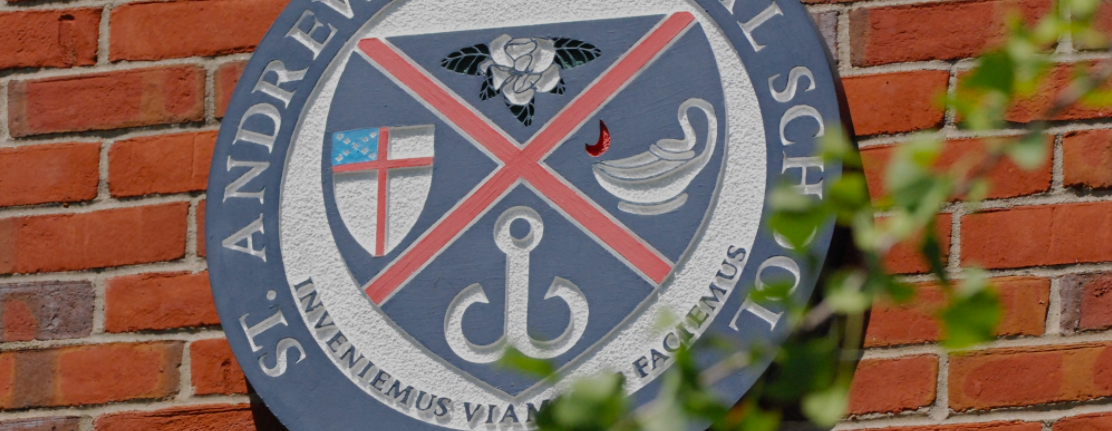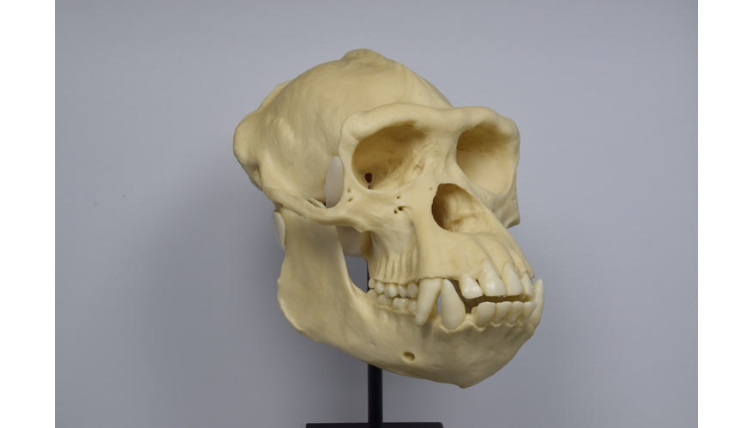
By teaching scientific literacy, collaborative research, lab-based skills, and critical thinking, the science department empowers students to solve the problems of an ever-changing world with a sense of curiosity.
Learn More about the Science Department
Strategic Goals
The Science Department adopted a series of short and long-term goals in 2022 with the goal of completing these over a ten-year period. While some of these are more specific to in-house curriculum goals and continuing to grow in both horizontal and vertical alignment, many of the goals set forth connect to our broader community and strive towards achieving our mission statement: by teaching scientific literacy, collaborative research, lab-based skills, and critical thinking, the science department empowers students to solve the problems of an ever-changing world with a sense of curiosity. Below are a few examples of goals we strive to achieve in the coming years that affect our larger community.
Increase the Utilization of Realtime Datasets
Students frequently analyze datasets to make inferences about the world around them. By adding instruments like an accurate climate station on campus and collecting data on our natural ecosystems, students will be able to see how data are collected reliably and provide tangible examples that connect to climate science and ecological systems.
Promote Sustainable Practices on Campus
Students, faculty, and staff can all find ways to reduce their carbon footprint. By doing things like adding reusable dishes and hand towels for faculty to reduce their waste or promoting programs where all students use reusable water bottles, we can help promote practices that help our environment.
Promote Native Habitat Growth & Wildlife Education
Our students continually work to remove invasive species on campus. Over time, our hope is to have a series of walking trails with informational signage describing native species and the ecological relationships that exist on campus. This will ultimately include teaching decks, wildflower trails, wetland trails, birding stations, and an educational disc golf course.
Live Further into the Vision of the McRae Science Center
The McRae Science Center is arguably one of the best facilities for teaching science in the Southeast. Our goal is to make it even better by transforming it into an educational facility with exhibits connecting to educational content that could ultimately provide unique ways for our students to learn like no other school.
Our Science Curriculum
The science department has created a unique curriculum aligned in part with the Next Generation Science Standards and adapted to keep courses rigorous and age-appropriate. Our curriculum for students in science classes across grades 5-12 is broken down into five key content areas: Scientific Skills, Biology, Chemistry, Earth & Spaces Sciences, and Physics. Each course then has a set of key objectives which shows how the curriculum is scaffolded across 8 years of education. Some courses might have a larger focus on one key objective, while others survey a wide array of key objectives. Click the buttons below to view our major content areas, then take a look each course’s Key Objectives on our Classes Page to see how they build over time. Please note that our curriculum is a living document that changes as our faculty build upon these documents each year.
Online Science Collection
Students have access to thousands of specimens and models during labs & activities on campus. While specimens are still being added to our database, click below to view the nearly 500 specimens already catalogued. If you’re in an art class on campus and wishing to draw one, just ask your science teacher and the specimen can be loaned out to your teacher!
Faculty
St. Andrew’s science faculty love to get students engaged in the sciences. Our backgrounds and experience in various fields creates unique courses with their own styles. St. Andrew’s currently has nine faculty that teach courses within the science department. Learn more about our faculty below.
Gracie Bellnap
AP Biology, Anatomy & Physiology, Ethics in Science, Zoology, Bower INSTAR Scholars Program Research Coordinator, Volleyball Coach
A native of Houston, TX, Gracie attended Millsaps College to play volleyball and pursue a B.S. in Biology. Her undergraduate research involved surveying local aquatic turtle populations. After graduation, Gracie worked as a naturalist in Southern California. She started teaching courses at St. Andrew’s in 2020 and coaching volleyball in 2021. Gracie has a passion for biology and loves to share it with others, both in the classroom and through informal education events within the Science Adventure Series. In her free time, Gracie likes to read and craft.
Claudia Bhagat
Chemistry, Honors Chemistry, and AP Chemistry
Dr. Claudia Bhagat studied biochemistry in her native country Germany, where she also received her PhD in biochemistry. She came to America in 2005 to work as a postdoctoral fellow at the University of Mississippi Medical Center. She switched to teaching at St. Andrew’s in 2011, starting with chemistry, and adding later also Honors and AP chemistry.
Perry Goldsbury
7th Grade Science & Head Boys Soccer Coach
Perry has been teaching at St. Andrew's Episcopal School since 2018 and has taught 7th Grade Science each year. Perry has also been the head boys coach at St. Andrew's since 2021 and won state championships in 2023 and 2024. Originally a native of England, Perry came to America in 2011 to study at the University of Texas-Brownsville and play college soccer. Perry received his B.S from UT-Brownsville before receiving an M.S from Mississippi College with an emphasis in exercise science and anatomy and physiology.
Kelly Hicks
Physics, Honors, Physics, & AP Physics C
Kelly Hicks has been teaching at Germantown High School in Madison since 2011. She is very excited to join St. Andrew's Episcopal School this year. Prior to her career in education, Ms. Hicks was a mechanical engineer primarily working in the aerospace field.
Karyn Kunzelman
8th Grade Science
Dr. Karyn Kunzelman received a B.S. degree in engineering science from the University of Michigan, Ann Arbor, in 1986 and a Ph.D. degree in biomedical engineering from the University of Texas Southwestern Medical Center, Dallas, in 1991. She has been teaching 8th-grade science at St. Andrew’s Episcopal School since 2019. Previously, she served on the faculty of the University of Maine as a Professor of Mechanical Engineering and was Director of Research for Central Maine Medical Center. She has held academic positions in cardiothoracic surgery and bioengineering at the University of Wisconsin, and the University of Washington. She has received research funding from the National Institutes of Health, National Science Foundation, American Heart Association, Whitaker Foundation, and other institutional or industry sponsors for her work studying cardiovascular mechanics, tissue remodeling, and surgical intervention.
Marks McWhorter
Biology, Zoology, Bower INSTAR Scholars Program Research Leader, and Science Department Chair
Marks has been teaching at St. Andrew’s Episcopal School since 2016 and has taught a variety of upper school science courses, including chemistry, environmental science, comparative ecosystems, biology, and zoology, as well as leading the department’s independent research program since its’ inception in 2019 and serving as chair since 2017. Before St. Andrew’s, Marks was the outreach director for the biological sciences department at the University of Southern Mississippi and taught mammalogy and arachnid biology. His passion for science began early on with volunteering and then working at the Jackson Zoo, which led to an enthusiasm for science and education. Marks received his B.S. and with an emphasis in environmental science and M.S. at the University of Southern Mississippi. During that time, he studied the effects of encephalitis viruses on migratory birds and their ability to fight infections during migration and the species-typical and atypical behaviors of captive leopards in zoological institutions.
Tracy Oglesby
6th Grade Science
Tracy has been teaching at St. Andrew's Episcopal School since 2022. She earned her B.S. degree from The University of Southern Mississippi and her Master's degree in Education from William Carey University. Throughout the years, Tracy has taught a variety of high school courses including Biology, Advanced Biology, Human Anatomy and Physiology as well as middle school science grades 6 through 8. She is fascinated by cellular biology and genetics and passionate about sharing her love for science with her students.
Emily Philpott
AP Pscyhology, Upper School History, and Director of Global Studies
After graduating from the University of Virginia with a Master’s in Teaching, Emily has spent the past 23 years in the classroom. This will be her 7th year at St. Andrew’s Episcopal School where she also serves as Director of Global Studies along with teaching AP Psychology. Through the years Emily has been a department chair, tennis coach, Model UN advisor, and international trip leader. She is also a National Geographic Certified Educator, a Peace Teacher with the United States Institute of Peace, a Fulbright Teachers for Global Classrooms Fellow, a Transatlantic Outreach Program alum, a Keizai Koho Fellow, and an AP Reader. Emily is passionate about global education and hopes that students leave her courses with a greater understanding and appreciation of the world and the skills and confidence to create positive change. In addition, she is fascinated by cognitive science and its application to teaching and learning.
Simone Weatherspoon
5th Grade Science
Simone Weatherspoon graduated from the University of Miami in May 2024 with a B.S. in Microbiology and Immunology. Throughout her undergraduate years, she served as a teaching assistant for biology and microbiology classes. She also spent three years as an undergraduate research assistant in the UQUEST lab, developing a science and health curriculum for elementary students in the Overtown area.
Grow our Scientific Learning Collection
The science collection at St. Andrew’s is one of the most robust collections in K-12 education across the state. With thousands of specimens, our aim is to both to continue to grow our collection while also make what we have more accessible. Ultimately, our wish is for the entire science collection to be accessible virtually through our online database.
Establish an Informal Educational Program for our Community
Beginning in 2022, the department’s Science Adventure Series provided novel ways for students, families, and members of the greater Jackson community to learn about science. Our hope is to continue to grow programs like our Nights at McRae, SA Spooktacular, and Sip & Science events in the years to come.






















